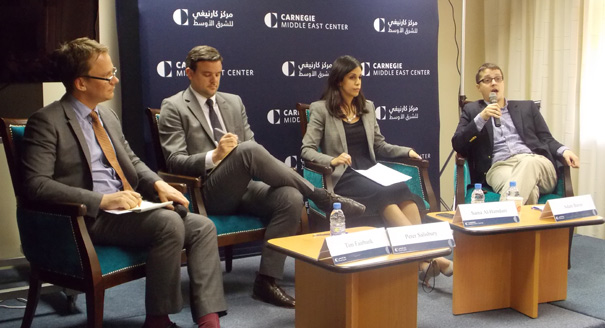{
"authors": [],
"type": "event",
"centerAffiliationAll": "",
"centers": [
"Carnegie Endowment for International Peace",
"Malcolm H. Kerr Carnegie Middle East Center"
],
"collections": [],
"englishNewsletterAll": "",
"nonEnglishNewsletterAll": "",
"primaryCenter": "Malcolm H. Kerr Carnegie Middle East Center",
"programAffiliation": "",
"programs": [],
"projects": [],
"regions": [
"Middle East",
"Yemen",
"Gulf"
],
"topics": [
"Security"
]
}
Yemen in the Midst of a Regional Proxy War
Tue, May 26th, 2015
Beirut
Yemen’s security situation remains unstable. The poorest country in the Middle East, Yemen is reeling under the effects of war and facing shortages of water, food, and medical supplies.
The Carnegie Middle East Center held a special conference to discuss the current situation in Yemen and its implications for the security of the greater Middle East. The conference brought together experts, researchers, and policymakers to highlight the role of state and non-state actors in the conflict, and discuss the steps that Middle Eastern and Western countries can take to help resolve—or at least contain—the violence.
Carnegie does not take institutional positions on public policy issues; the views represented herein are those of the author(s) and do not necessarily reflect the views of Carnegie, its staff, or its trustees.